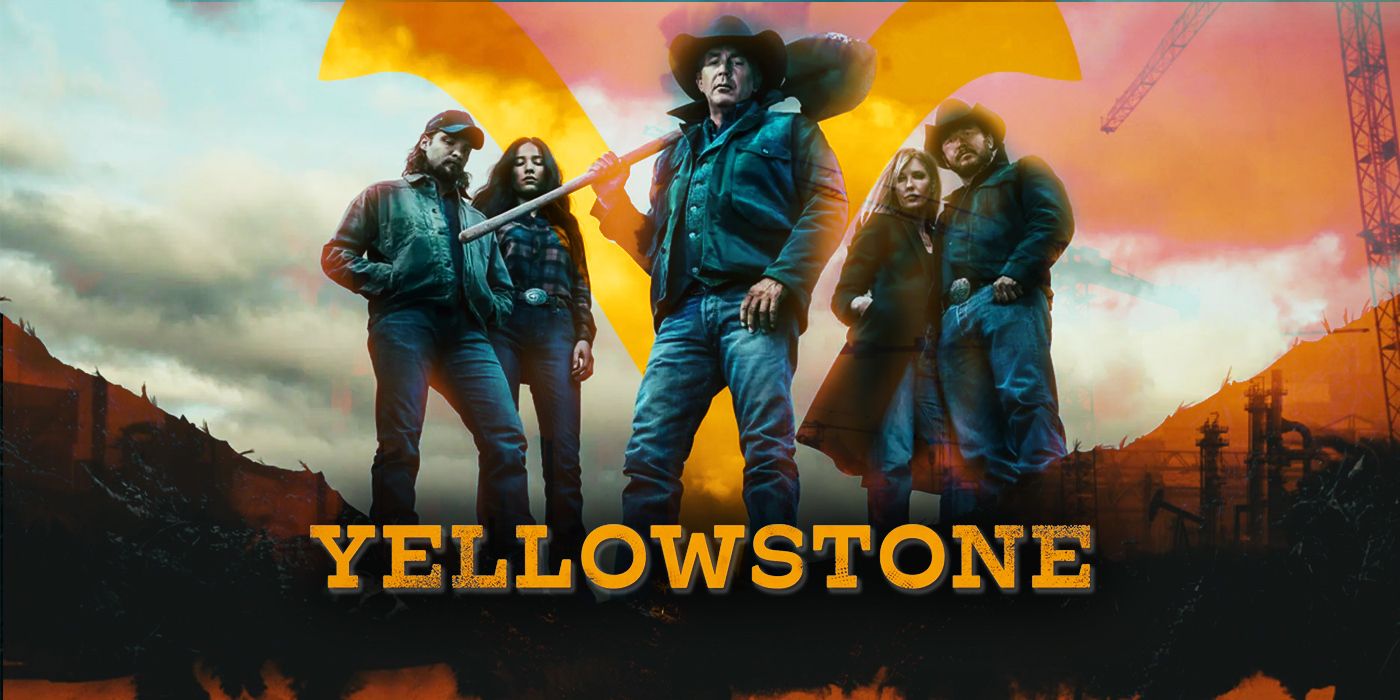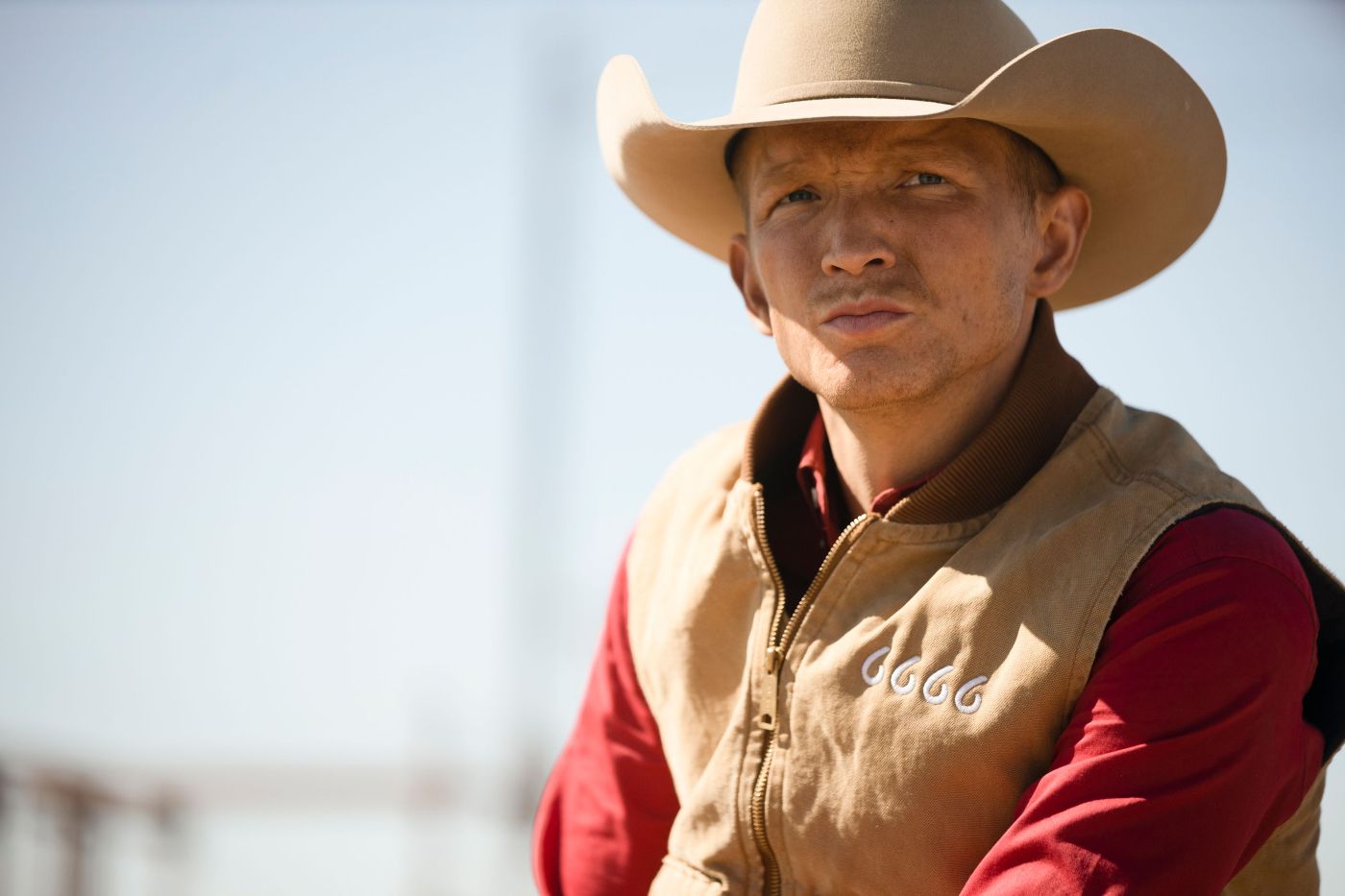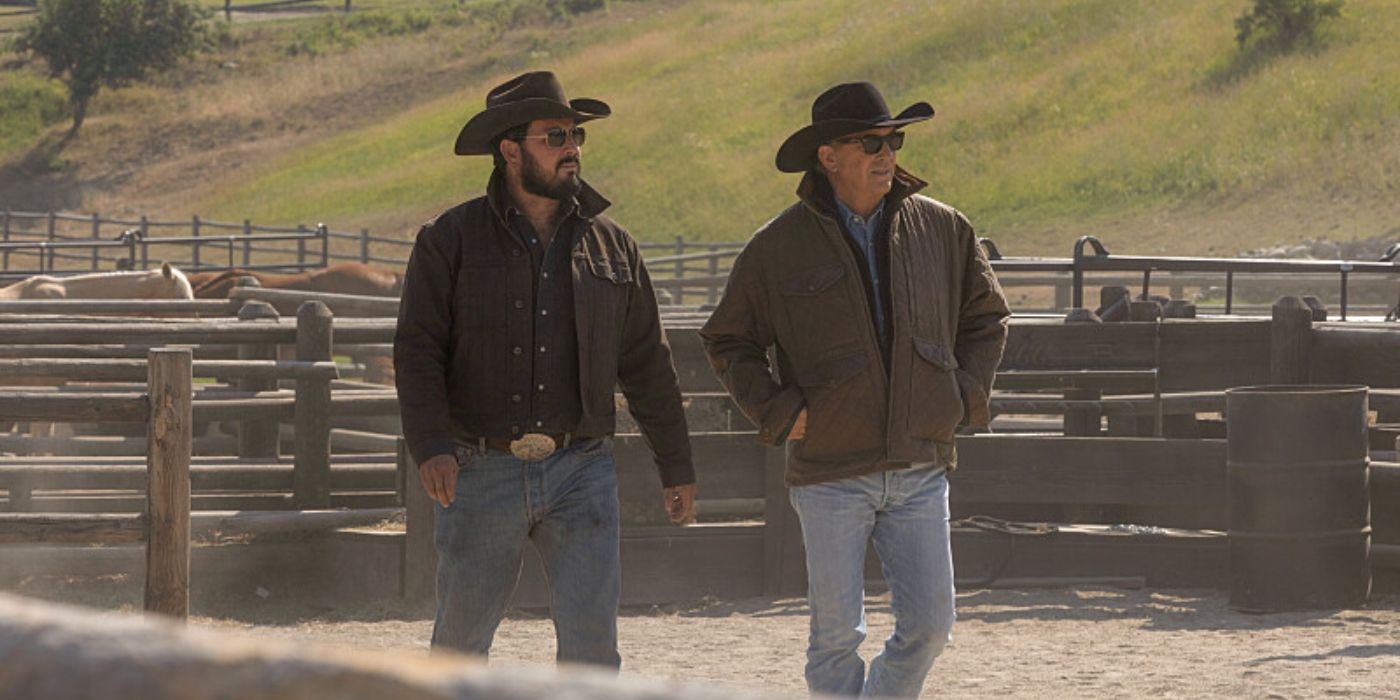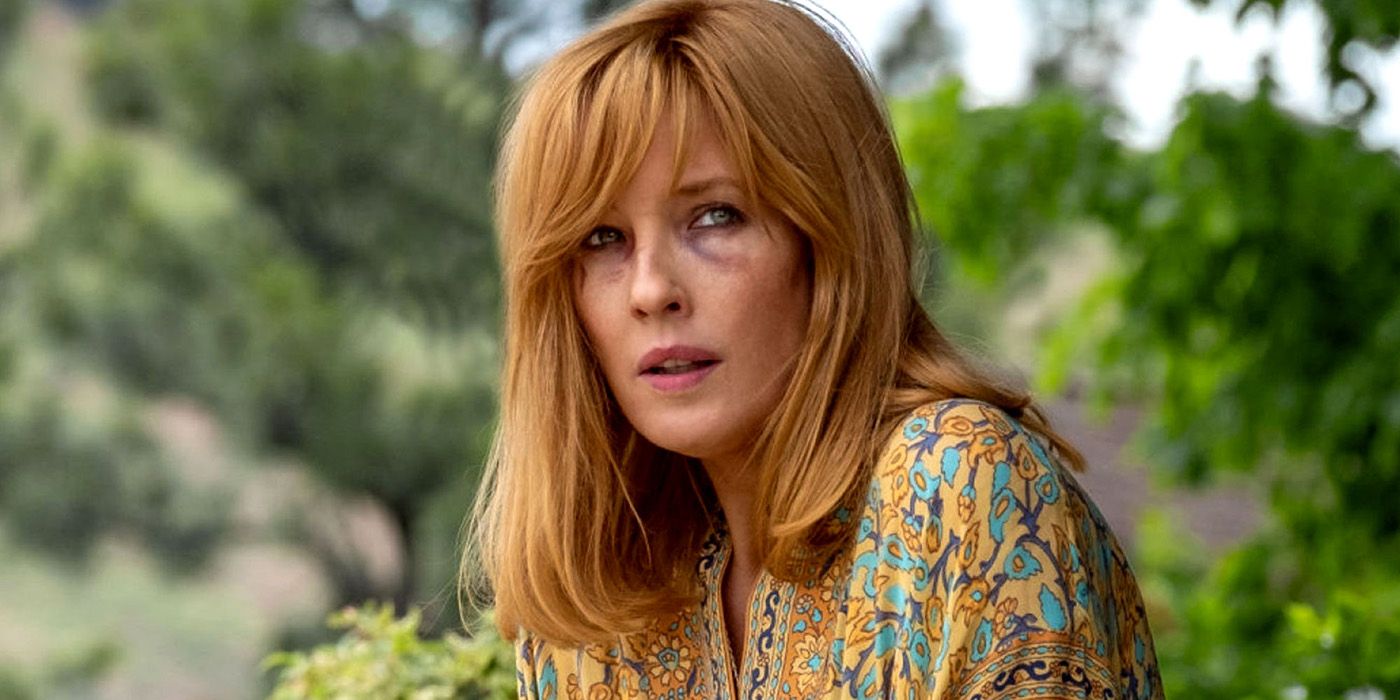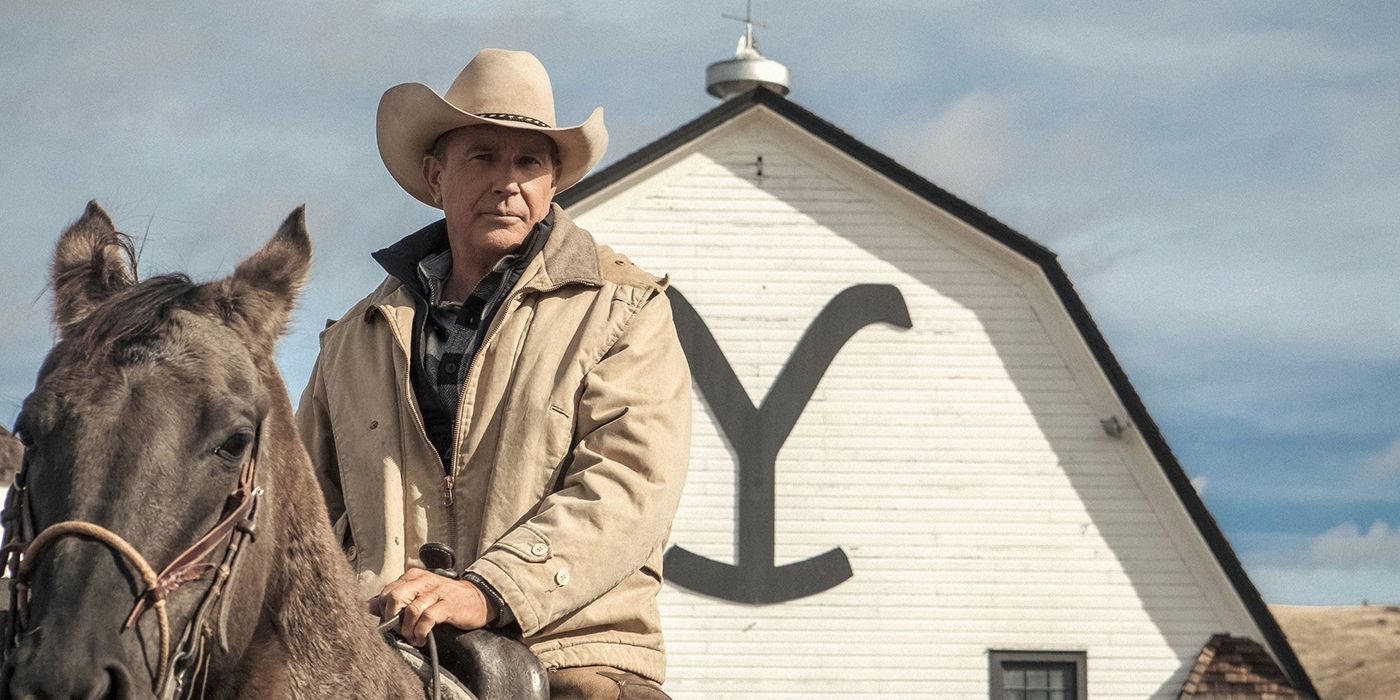For years, fans have been enthralled by the drama of Yellowstone as it follows one family's struggle to do whatever it takes to maintain their legacy: an 800,000-acre ranch in the crucible of Paradise Valley, Montana. Facing foes of all kinds over the past five seasons, the Duttons have proven that they are willing to protect their land by any means necessary.
As the obvious protagonists of the series, we can't help but be on their side as we watch them battle outside forces in the name of preserving their land and simple way of life. Once you look past the drama of their high-stakes world, are they really the good guys in their story? Let's look at a few things that really make us question if the Duttons are in the right at the end of the day.
The Brands
This dark tradition was introduced in the very first episode of Yellowstone, when Rip (Cole Hauser) gives Jimmy (Jefferson White) a brand, informing him that his only chance at life is to work forever as a farmhand on the Yellowstone. The brand represents something very significant in the series, as it is normally used to mark cattle as personal property. The idea of branding a person and informing them that they can spend their life in service on the ranch or be killed is not only questionable but downright evil.
The head of the Dutton family, John (Kevin Costner), apparently started this tradition, taking vulnerable young men with no other options and offering them a home on his ranch, provided they pledge their lifelong allegiance to do his bidding. He even went as far as to brand his own son. The cattle brands are treated by the characters as some sort of pact or prize for loyalty, but in reality, it is much more reminiscent of a cult.
The Train Station
Perhaps the most villainous aspect of the Duttons is their casual use of what they call "the train station." The train station is actually an area of a cliff-side road that belongs to no county, therefore any crime committed there would not fall under any jurisdiction and a jury could not be assembled to prosecute the Duttons. The family takes advantage of this quaint little spot to dump the bodies of any person who stands in their way.
It was introduced in the first few episodes of the series when one of the farmhands is fired for breaking the cardinal rule of no fighting on the ranch. While in a normal job, you would receive a pink slip and maybe some severance, John Dutton has another farmhand "drive him to the train station" and execute him. It's the Duttons' version of signing an NDA. If your family has a designated spot to murder people and hide their bodies, can you call yourselves the good guys?
The Abuse Within the Family
Some of the worst things that happen to the Duttons are at the hands of their own family members. The Dutton family has a very complicated relationship, to say the least. From feuding siblings to abusive parents, Yellowstone runs the gambit of familial trauma. Fans know that for many characters, the abuse and trauma they suffered in their childhood have a great bearing on their behavior as adults.
Perhaps the person who suffered most at the hands of her own family is Beth (Kelly Reilly). In a flashback, we see her mother get bucked off a horse and use her dying breath to blame her daughter. Beth also has an incredibly toxic relationship with her brother, Jamie (Wes Bentley), who had Beth unknowingly sterilized while helping her terminate an unwanted pregnancy. This trauma has led to many abusive confrontations between the two, both verbally and physically. The most intense act came in the last season, when Beth blackmailed Jamie over the murder of his biological father. Despite their common cause, the Duttons are deeply dysfunctional turning to physical and emotional violence during every conflict.
The Historical Context of the Duttons' Claim to Their Land
One of the things the Duttons' morality hinges on is the history of their family, and their right to be on the land in the first place. The Duttons often find themselves at odds with the leaders of the Broken Rock Reservation, and one can't judge the Duttons without looking at the context of how their family acquired the land. The Yellowstone universe, especially the prequels, shed light on the tragic conflicts that arose from Western Expansion, and how it affects Indigenous communities today. In 1883, we see the foundation of the Yellowstone Ranch when the land is given to James Dutton (Tim McGraw) by an Indigenous tribe on the condition that it is returned to their descendants in seven generations. While the fact is that the land was gifted and not technically stolen, there is still a stark contrast between the lifestyle that the Duttons enjoy and the hardships the people on the reservation face. It can be hard to imagine that the Duttons are doing the right thing by protecting their family legacy when in the eyes of many, they have no right to it in the first place.
It is clear that what the Dutton family suffers from goes far beyond character flaws, so can we call them the good guys in the story? The Yellowstone universe certainly operates within a gray area when it comes to its characters. It is often hard to tell who is in the right, but that is what makes the story so complex and engaging. Like real people, they make both good and bad choices and have to face the consequences of their actions. While the Duttons may become the villains of their own story, you can't help but root for them as you tune in every week to see what fresh hell they've gotten themselves into. When the second half of Season 5 returns, it will be interesting to see if the characters will continue down a darker path or seek some sort of redemption as the series nears its end.

